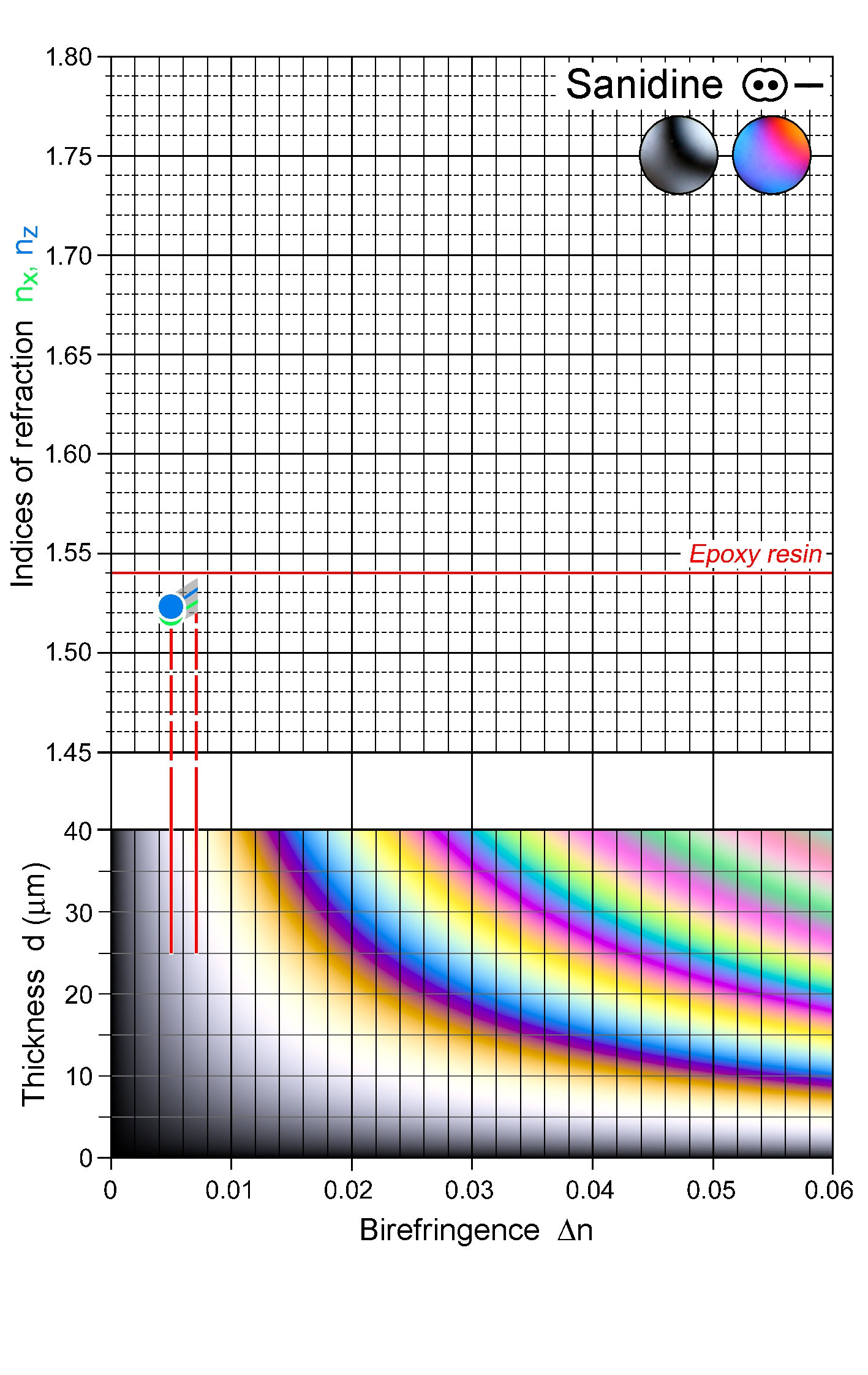|
| Formula | (K,Na)AlSi3O8 |
| | Optic class & sign | Biaxial negative |
| | Optical orientation | a near X, b = Z, c near Z |
| | Optical plane | Low-sanidine: orthogonal to (010); high-sanidine: ∥ (010) |
| | Relief | Low negative |
| | Refractive indices | nx = 1.518 -1.527
|
|
ny = 1.522 -1.532
|
|
nz = 1.522 -1.534
|
|
| n increases with increasing Ab component |
| | Birefringence (max.) | 0.005 - 0.007 |
| | | Δn increases with increasing Ab component. Crystals commonly unzoned. |
| | Optic Angle
| 2Vx
= 0 - 60° for low-sanidine, 0 - 60° for high-sanidine |
| | 2Vz
|
| | Sign of elongation | Length-fast, l (-) for crystals elongate ∥ a |
| | Interference figure | Diffuse isogyres on a white background; 2V is controlled by the degree of disorder as well as composition. Distinction between low- and high-sanidine requires recognition of the (010) plane in the form of a twin plane or crystal face. Obtain optic axis figure and check OP orientation against (010) in orthoscopic image. |
| | Colour / pleochroism | Colourless |
| | Zoning | |
|
|
| Form | Habit | Tabular; acicular in spherulites in volcanic glass |
| | | Surface | Euhedral phenocrysts in volcanics |
| | Cleavage | {001} perfect, {010} distinct, orthogonal to each other |
| | Twinning | {010} Carlsbad twins most common |
| | Extinction | Inclined, up to 5° to {001} cleavage traces |
|
|
| Reaction textures | |
| | Alteration / decomposition | Kaolinite, illite, sericite |
|
|
| Occurence | Ign | Silicic volcanic and sub-volcanic rocks |
| | | Met | Xenoliths in lavas or dykes; high-temperature, low-pressure contact zones (sanidinite facies) |
| | | Sed | |
| | | Hyd | |
| | | Other | |
|
|
| Distinctive properties | Low n, low Δn, characteristic twinning, occurrence; distinction between high- and low-sanidine see under ‘Interference figure’. |
| | Additional comments | Preservation of high-sanidine (disordered structure) requires rapid quenching. The division between high-sanidine and low-sanidine is set at 2V = 0, where the OP orientation switches.
The diagram below shows the relationship between 2Vx, composition and Al-Si order/disorder for alkalifeldspars. |
|
|

 Images
Images 



 Images
Images 

